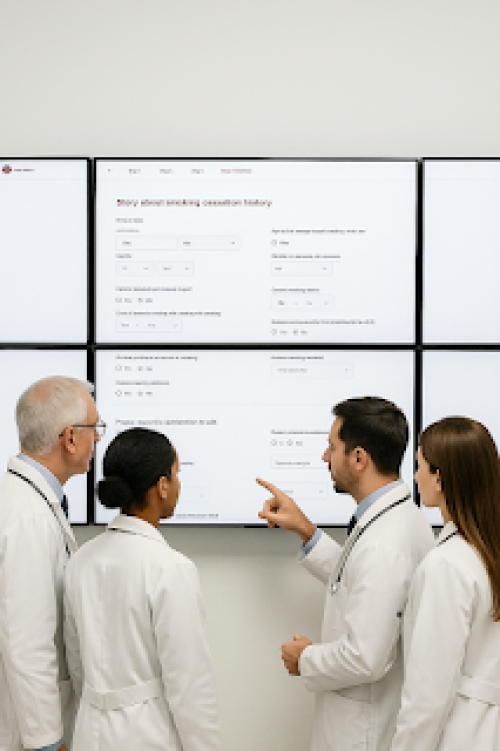
At BILBOMÁTICA, an ALTIA company, we are deeply involved in an experience that extends far beyond technological advancement. Participating in the European LUCIA project is giving us the opportunity to use our skills for something important: improving the early detection of lung cancer, a disease that affects thousands of people in Europe every year.
Our main function at LUCIA is to develop advanced tools that help researchers and medical staff by simplifying their medical study tasks, ensuring safety, and improving professional productivity. One such tool is ECRF , a digital system that provides structured information crucial for identifying lung cancer risk in patients participating in the study.
We've also created a research environment through a platform that bridges science and technology. Researchers can view information, use analytical tools, verify medical factors, and collaborate thanks to connections like Jupyter Notebook. All of this is designed with a user-centric approach and built using technologies such as Java, Angular, and PostgreSQL, without neglecting essential elements like security, where we've included KeyCloak.
But if there's one thing we gained from this project, it's the belief that technology can truly impact people's lives . LUCIA demonstrates how teamwork among various experts—doctors, scientists, and technology specialists—can change our approach to identifying risks in lung cancer.
At Bilbomatica, we are proud to be part of this European initiative that not only aims to advance research but also ensures increasingly effective access to prevention. Because behind every line of code, there is a life that can be changed.
The LUCIA project receives funding from the European Union's Horizon Europe research and innovation programme under grant agreement 101096473 .

